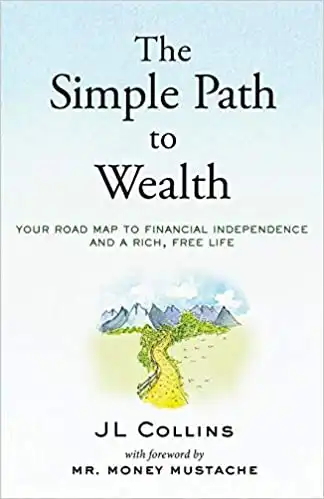What’s the difference between income and wealth?
Let me ask you a question. Do you think people are wealthy based on their income?
If so, then all doctors and lawyers should be among the wealthiest as most are high income earners, right?
The majority of the physicians and dentists I know have solid six-figure incomes but have a difficult time accumulating any real wealth due to several factors such as:
- high student loan debt
- extravagant house
- luxury cars
- private school tuition
- expensive vacations
- start earning later in life
The more I learn and network with successful individuals, the more I realize that being wealthy has more to do with how much you make.
Let’s take a look at wealth vs income…
Table of Contents
Wealth vs Income: Definition and Examples
What Is Income?
To me, income is EARNING money.
According to our good friends at the IRS, earned income is defined as:
“All the taxable income and wages obtained from working.”
Whenever you work for someone or for yourself, you earn an income. But people typically mistake their income data as their salary before income federal taxes are withdrawn.
So when you hear someone touting that they make $450K a year, more than likely that’s pre tax aka BEFORE the tax man gets his hands on him.
It’s actually more useful to think of it in terms of disposable income (after income tax) which helps give a clearer picture of how much money is available to spend on wants and needs.
Disposable income is determined by the flow of money into a household minus what goes out to Uncle Sam. The mean income (or median income) in the United States was $68,703 in 2019. It is possible to earn less and still be wealthy based on the amount of disposable income one has. Income inequality takes on a much broader meaning when indisposable income is added to the equation.

What Is Wealth?
To me, wealth is HAVING money.
Differences in income have little to do with whether someone is wealthy or not.
According to Rich Dad Poor Dad author Robert Kiyosaki, he states that, “The wealthy don’t worry about money.”
If that’s the case, then the majority of Americans are NOT wealthy.
According to recent survey data, 77% of Americans are stressed about their financial situation. As you move up the income ladder and income growth occurs, debt often rises as well. This is why many who get a raise or a new job with a higher salary don’t experience a change in their income gap, or difference between income and expenses.
What’s ironic is that the survey was produced by Capitol One. Maybe that’s why they’re always asking, “What’s in your wallet?“
Go figure.
They also concluded that:
- 58% feel their finances control their lives
- 52% have difficulty controlling money-related worries
- 68% mostly worry about having enough retirement income saved
It sounds like increases in wealth held can also improve our mental health which is another reason to pursue it! Improving your mental health is substantially greater than just earning more income any day.
So, what exactly is wealth?
Wealth refers to the net worth of a household.
Net worth is a snapshot of value if you cancel out household wealth and financial assets and debts.
You can calculate your own if you add up all your assets minus your. Examples of assets and other valuable possessions include homes, vehicles, real estate, and investments while liabilities/debts include mortgage, student loans, credit card debts, etc. This is why income distribution matters.
Related article: What Are the 3 Types of Income?
You do not need to be a billionaire to be considered wealthy. Depending on where you live, research claims that a net worth of around $2,500,000 is wealthy. This is around the top 5% of all households in net worth and can sustain around $100,000 in spending for 30 years.
Here’s a breakdown from Business Insider of the median net worth by age of Americans:
- Under 35: $6,676
- 35–44: $35,000
- 45–54: $84,542
- 55–64: $143,964
- 65–69: $194,226
- 70–74: $181,078
- 75 and up: $155,714
How do you stack up?
3 Books About Wealth
Three of my favorite books that come to mind when discussing income vs wealth are The Millionaire Next Door, The Simple Path To Wealth, and The Cashflow Quadrant.
1. The Millionaire Next Door
The authors of The Millionaire Next Door, Thomas Stanley & William Danko, state:
“Many people who live in expensive homes and drive luxury cars do not actually have much wealth. Then, we discovered something even odder: Many people who have a great deal of wealth do not even live in upscale neighborhoods.”
2. The Simple Path To Wealth
JL Collins breaks down investing into one simple strategy that works in his book The Simple Path to Wealth. We will give you a hint, Index Funds is where it’s at!
In JL Collins’s book, The Simple Path To Wealth, he gives out specific guidelines to obtaining wealth such as:
- Spend less than you earn – invest the surplus– avoid debt.
- Avoid fiscally irresponsible people. Never marry one or give them access to your money.
- Money can buy many things, but nothing more valuable than your freedom.
- Save a portion of every dollar you earn or that otherwise comes your way.
- Try saving and investing 50% of your family income. With no debt, this is perfectly doable.
- When you can live on 4% of your investments per year, you are financially independent.
3. The Cashflow Quadrant
In The Cashflow Quadrant, author Robert Kiyosaki teaches it’s NOT how much we make but how much we KEEP.
Assets put money in our pockets and liabilities take money out.
We want to make sure we invest to grow our wealth. We can do this by investing in things that produce real-income, appreciate or do both.
He’s big into real estate investing which both provides cash flow and appreciates the longer you hold it.
As a side note, Kiyosaki states that acquiring more money won’t solve your financial problems if you don’t know how to manage it. It actually makes things worse. If you want to grow in wealth and prosperity, you’ll be intentional about managing your personal finances.

Income Is NOT Wealth
Most high income earners don’t understand that income is NOT wealth. A rise in income does not necessarily mean a rise in wealth.
The sad fact is that despite delaying gratification out of college, most high-income professionals incur high debt from lengthy training to enjoy high salaries but live paycheck to paycheck.
Why?
They spend money on things that go down in value to impress people that don’t care about them (FB friends/IG followers), instead of investing an amount of money on assets that pay them in capital gains whether they treat patients or not.
If the amount of money you earn is limited by the number of hours you work, then unfortunately you will NEVER be wealthy.
Reread that sentence until it sinks in.
REAL assets (i.e. real estate) produce income independent of laboring which helps set you free. This allows you to move from working harder to working smarter.
In terms of income, some people may be poorer than they realize if they stop to consider income vs debt. While others that are thought of as among the poorest are actually wealthier than those with a higher income.
The diagram below shows why the average person stays broke as they use their household income to generate expenses from their liabilities.
Wealth = income producing assets
The level of income and wealth inequality can be measured by: The share of national income going to different groups in society, the poorest 20% of households at the bottom of the income scale through to the richest 20%. The proportion of all households who must live on an income below an official ‘poverty line’.
One of the main differences between wealth vs income level is that ultimately wealth has to do with financial freedom.
It means that you’ve either invested enough in the market to sustain your lifestyle or you’ve built sufficient passive income streams to pay your bills while you sleep (I prefer the second choice). Growing income through passive income streams can lead to increased wealth.
I could care less about the clothes I wear (my wife does though) or what I drive.
I can’t tell you how many people in town call me “Coach“… I guess I dress like a coach?
To me at this stage of the game, all I want to know is that if I need to attend one of my kid’s school functions or spend time vacationing with the family then I can do so without financial pressure. This is true financial independence.
For us, wealth is a measure in time, not dollars.
Related article: Generational Wealth: 7 Ways To Build A Money Legacy

Final Word
Now that you know the difference between wealth vs income, do you consider yourself wealthy?
I understand that a high salary can make one appear wealthy but it takes commitment and sacrifice to start building wealth. Real rich people know this.
If you’ve been thinking about how you can not only live above the poverty line, but attain financial freedom in terms of working more hours or possessing more skills, think again.
It’s going to take a mindset shift to get you thinking of wealth in terms of an amount of money that’s being generated for you while you’re doing other things. A simple mindset shift could be the difference between rich and poor for you and your family’s household wealth.
Once you realize that there’s a cap on how many hours you can work then you can start the process of focusing on obtaining assets that can produce income for you.
Now you’ll be working SMARTER like some of the richest people in the world.
Being wealthy means you don’t have to do as your peers do…trading time for dollars to survive. You can enjoy trips with family, give more and live life however you see fit.
Wealth is freedom. Wealth is time.
Are you ready to learn how to obtain real wealth and take personal finance more seriously? Check out our article on the FIRE Movement.






Steveark
Wednesday 2nd of December 2020
I found an interesting article that backs up your post with a lot of data. https://dqydj.com/correlation-income-net-worth/ It's certainly easier for high earners to have attained wealth but the data shows the correlation of high net worth to income is pretty weak.